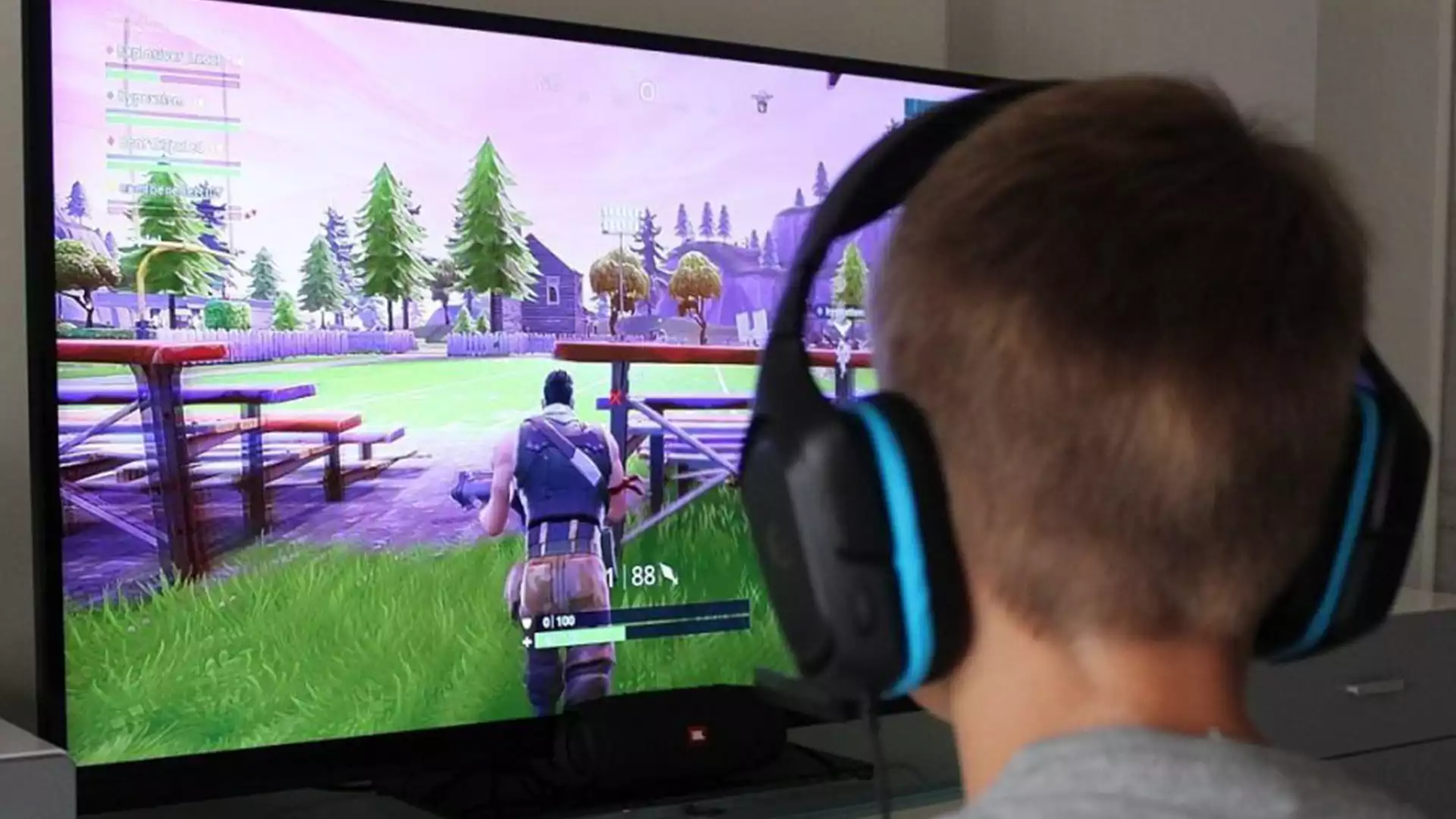Bielefeld. The tension is almost unbearable. “Mom, I have to play now! They’re all waiting for me already.” Eleven-year-old Finn has an appointment. He sits down on the sofa. “Hi guys, here I am,” he says into the headset. While he squats alone in front of the screen, his virtual self dances with the other “Fortnite” players and clowns around. Then they go off together, pounding on trailers and dumpsters. “We need the components to build stairs,” Finn explains.
Some 400 new digital entertainment games have now been unveiled at Gamescom in Cologne. 400 more ways to lose your child to the virtual world. Like the video game Fortnite, which has been on the market for over two years and is still the most popular game among young people.
The Battle Royale version has been approved by the Entertainment Software Self-Regulation Body (USK) for ages twelve and up. The Spieleratgeber-NRW, however, recommends the shooter game for ages 14 and up at the earliest. “The USK omits criteria such as costs, binding factors, data protection and other important aspects from its review. However, these should be taken into account by the parents,” says Daniel Heinz from the Spielatgeber NRW. Not every twelve-year-old can already control themselves to the extent that they can, for example, independently assess the costs that could arise through in-app purchases. So is Finn too young for this? After all, there’s no blood. There are no corpses. If you get shot down, you fall to pieces. But even if Mom and Dad think he shouldn’t play the game yet, they can’t stop him from doing so – because then he’ll just play with his friends.
Finn had to save for three years until he could buy the game console from his savings. There were still dates outside the house. Now he only uses his parents’ cab when he has to go to soccer practice and doesn’t want to ride his bike. Meeting friends is much easier now. Just not in real life. And only when his parents allow it. Because there are clear rules about when and for how long he can gamble.
But what are rules? The situation escalates almost daily. Parent: “You were supposed to turn it off ten minutes ago!”. Son: “I’ll just finish playing this.” This then continues until the “media ban” is issued first for tomorrow, then for three days, and finally for a week. “You guys are so unfair!” – Doors slam. Everyone is pissed off.
The half hour of play time Finn has in the evening is actually never enough. Afterwards, there’s always a discussion. But there have to be limits, parents know that. “Since a successful round of Battle Royale can last up to 40 minutes, it doesn’t really make sense to limit the time to 30 minutes,” says media educator Daniel Heinz. “A time like five hours a week, for example, would be better.” And when Finn is allowed to play longer on the weekend, he is unbearable afterwards. He quickly becomes aggressive, only talks back and is less able to concentrate.
When Finn wanted to create his account at the American company Epic-Games, he was asked for his e-mail address and his name. He gave his mother’s e-mail address. The age was not checked. The game itself is free, though virtual currency can be purchased through in-app purchases.
And those who want to play networked on the console need a Gold or Plus Pass, which costs about seven euros a month. The aim of the game is to kill your fellow players and be the last survivor to win the round. Gamers have the opportunity to communicate with each other via an in-game voice chat. Finn not only talks to his friends, but also to strangers around the world.
Project manager Daniel Heinz from the NRW Game Advisor advises parents to be calmly skeptical about digital games. “The word addiction should be used carefully,” says Heinz. As long as other areas of life do not sustainably suffer from the game consumption, he rather speaks of a hobby.
In addition, Fortnite currently has great cultural relevance: The circle of friends plays Fortnite – I have to keep up with that. And whoever wins more gets a higher status in the circle of friends. But winning the round also means kicking everyone else out by killing them. The legal age rating of twelve and up should at best be seen as a recommendation, says Heinz. Every child reacts differently to violent depictions. Joint reflection would be advisable. It should also be discussed together that no addresses should be given out or that contact should be made with other players. But the most important thing is to have supportive discussions and clear rules that allow the adolescent to act on his or her own responsibility, says media educator Heinz.
Follow us and check out our social media accounts on Twitter, Facebook & YouTube ►
● on Twitter ► esport.directory
● Facebook ► esport.directory
● Youtube ► esport.directory
FortniteTips , Fortnitetricks, Fortnitecheats, Fortnitehacks, Fortnitehacks2022, FortniteTips pro, Fortnitepaidcheats, Fortnite, FortniteTips andtricks, FortniteTips andtricks2022, FortniteTips andtricksforbeginners, FortniteTips , Fortnitetricks, Fortnitetrickshots, Fortnitehacks, Fortnitehacksfree, Fortnitehacksfree2022,




